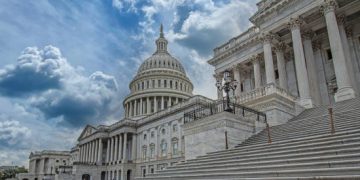The United States Supreme Court has scheduled oral arguments for November 5 to examine the legality of tariffs imposed during Donald Trump’s presidency. The case represents a significant test of the scope of presidential authority in economic policymaking and could reshape the future of U.S. trade policy.
Background of the Case
The tariffs in question were introduced as part of an expansive effort to restructure the U.S. approach to global trade. Former President Trump invoked the International Emergency Economic Powers Act (IEEPA) of 1977, a law designed to grant the executive branch certain powers during declared national emergencies. The statute allows the president to take various economic actions in response to emergencies, but it does not specifically include the authority to levy tariffs, duties, or taxes.
A federal appeals court in Washington, D.C., ruled in August that the administration exceeded its authority by relying on IEEPA for such measures. In a 7–4 decision, the court emphasized that while the law provides significant latitude to the executive branch, Congress has traditionally maintained the power to regulate tariffs and duties. This ruling opened the door for the Supreme Court’s review.
Legal Challenges and Business Impact
The tariffs sparked widespread legal challenges from businesses, particularly small and medium-sized enterprises, which argued that the duties increased operating costs and disrupted supply chains. One prominent case involves Learning Resources, a family-owned toy company, which joined other firms in contesting the administration’s use of executive authority.
Critics of the tariffs argue that the measures raised consumer prices and created uncertainty for companies dependent on imported goods. Supporters, however, contend that the policy was intended to strengthen domestic industries and encourage more favorable trade terms for the United States.
Potential Economic Implications
According to Bloomberg Economics analyst Chris Kennedy, the outcome of the case could carry sweeping financial consequences. If the Supreme Court upholds the lower court’s decision, the average U.S. effective tariff rate—currently estimated at 16.3%—could be reduced by nearly half. Additionally, the U.S. government could be required to refund tens of billions of dollars collected in tariff revenues over the past several years.
Such an outcome would have ripple effects across industries, from manufacturing to retail, and could alter the way future administrations approach the use of emergency powers in trade disputes. The ruling could also influence ongoing debates about the balance of power between the executive and legislative branches of government.
Fast-Tracking by the Supreme Court
The Supreme Court’s decision to fast-track the case highlights its importance. The Court, which begins its new nine-month term in October, has placed this issue among its top economic cases for review. The expedited timeline reflects the broader urgency surrounding trade policies that directly affect consumers, businesses, and international commerce.
Notably, the Court has previously granted the Trump administration approval for 18 consecutive emergency relief requests related to the tariffs, underscoring the ongoing legal complexities surrounding the policy. This November hearing will be the first time the justices hear full arguments addressing the scope of executive authority under IEEPA in connection with tariff policy.
Broader Context
Trade policy has long been a contested area of U.S. governance, with Congress historically holding the primary authority to set tariffs. The use of IEEPA to justify broad tariff measures raises questions about how emergency statutes may be applied in areas beyond their original scope. Legal scholars note that the Court’s ruling could set an important precedent for the interpretation of executive powers in future administrations.
Observers from across the political and business spectrum are closely watching the case. For policymakers, the decision will clarify how much latitude presidents have to act unilaterally in trade matters. For businesses, the outcome will determine whether existing tariffs remain in place or whether significant financial adjustments will be required if refunds are mandated.
Looking Ahead
The November 5 hearing is expected to be closely followed by economists, legal analysts, and business leaders alike. A ruling in favor of the administration would affirm the executive branch’s ability to act decisively in economic matters during emergencies, while a ruling against could reinforce congressional oversight of tariff policy.
Either way, the Supreme Court’s decision is likely to have long-lasting implications for U.S. trade relations, supply chains, and the balance of power between branches of government. The case highlights the ongoing intersection of law, economics, and governance in shaping national trade strategies.
#SupplyChainNews #TradePolicy #SCOTUS #Tariffs #EconomicUpdate















